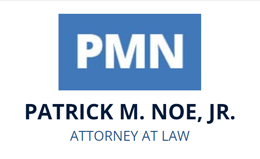Should you have a prenup?
Getting married is an exciting time of life, and it is easy to get caught up in the wedding planning without thinking about what happens afterward. If you or your partner is coming into the marriage with more assets than the other, you may want to consider a prenuptial agreement, commonly called a prenup. Although the idea of a prenup may sound like you are already looking ahead to divorce, it may actually help eliminate arguments in the future about finances and obligations. Before deciding to put together a prenup in New York, here are some things you need to know.
Why should you get a prenup?
Each prenup can be tailored to fit the needs of each couple. Although you may think of wealthy celebrities as the only ones who need prenups, the fact is that any couple may benefit from having one. For instance, if you are a single parent and your children stand to come into a large inheritance, you may want something in place to protect their inheritance. A couple who marries when they are older may each have assets that they want to remain their own ,and a prenup allows them to do that whether they remain married or end up divorcing.
What a prenup can do
Prenups basically determine in advance what a judge would decide in a divorce. The following is a list of things a prenup may address:
- Distribution of assets and debts incurred during the marriage in the event of death or divorce
- Right of each spouse to buy, lease, transfer, sell or control property
- Right to alimony as well as how much and how long the award will continue
- Right to life insurance death benefits
- Right to property by each spouse whether individually or jointly earned
- Rights each spouse has in the management of a business
- State law used in governing the agreement
How enforceable is a prenup agreement?
The state of New York has not adopted the Uniform Prenuptial Agreement Act and instead sets forth its own rules. Basic contract law applies to prenups in New York, which means the agreement must be in writing and signed by both spouses in front of a notary public. It cannot take effect until the marriage takes place; even if a ceremony is later deemed to be invalid, the prenup may still be legally binding. There are exceptions, however. If one of the spouses signed the agreement under duress, was mentally incompetent or was under the age of 18, the agreement may not be legally enforceable. If one spouse is defrauded, it was severely unfair, it was not in writing, or it was not signed until after the marriage, then it may not be enforceable. If you are in the process of a divorce and you signed a prenup, an attorney may provide advice on whether the prenup you signed can be legally enforced.
It is easy to get caught up in the excitement of a wedding, but it is also important to look toward the future. Before walking down the aisle, you may want to discuss your options with an attorney.

